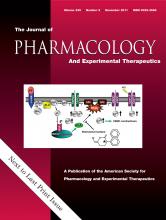Abstract
Marijuana abuse is very prominent among pregnant women. Although marijuana cannabinoids have been shown to exert immunosuppression in adults, virtually nothing is known about the effects of marijuana use during pregnancy on the developing immune system of the fetus and during postnatal life. We noted that murine fetal thymus expressed high levels of the cannabinoid receptors CB1 and CB2. Moreover, perinatal exposure to Δ9-tetrahydrocannabinol (THC) had a profound effect on the fetus as evidenced by a decrease in thymic cellularity on gestational days 16, 17, and 18 and postgestational day 1 and marked alterations in T cell subpopulations. These outcomes were reversed by CB1/CB2 antagonists, suggesting that THC-mediated these effects through cannabinoid receptors. Thymic atrophy induced in the fetus correlated with caspase-dependent apoptosis in thymocytes. Thymic atrophy was the result of direct action of THC and not based on maternal factors inasmuch as THC was able to induce T cell apoptosis in vitro in fetal thymic organ cultures. It is noteworthy that perinatal exposure to THC also had a profound effect on the immune response during postnatal life. Peripheral T cells from such mice showed decreased proliferative response to T cell mitogen as well as both T cell and antibody response to HIV-1 p17/p24/gp120 antigens. Together, our data demonstrate for the first time that perinatal exposure to THC triggers profound T cell dysfunction, thereby suggesting that the offspring of marijuana abusers who have been exposed to THC in utero may be at a higher risk of exhibiting immune dysfunction and contracting infectious diseases including HIV.
Footnotes
This work was supported in part by the National Institutes of Health National Institute of Environmental Health Sciences [Grants R01-ES009098, R01-ES019313]; the National Institutes of Health National Institute on Drug Abuse [Grant R01-DA016545]; and the National Institutes of Health National Center for Complementary and Alternative Medicine [Grant P01-AT003961].
Article, publication date, and citation information can be found at http://jpet.aspetjournals.org.
doi:10.1124/jpet.111.181206.
-
ABBREVIATIONS:
- THC
- Δ9-tetrahydrocannabinol
- CB
- cannabinoid receptor
- CFA
- complete Freund's adjuvant
- FITC
- fluorescein isothiocyanate
- FTOC
- fetal thymic organ culture
- GD
- gestational day
- mAb
- monoclonal antibody
- PD
- postnatal day
- Con A
- concanavalin A
- PE
- phycoerythrin
- TUNEL
- terminal deoxynucleotidyl transferase dUTP nick end labeling
- ANOVA
- analysis of variance
- PBS
- phosphate-buffered saline
- DMSO
- dimethyl sulfoxide
- RT-PCR
- reverse transcription-polymerase chain reaction
- SR141716A
- 5-(4-chlorophenyl)-1-(2,4-dichloro-phenyl)-4-methyl-N-(piperidin-1-yl)-1H-pyrazole-3-carboxamide
- AM630
- 1-[2-(morpholin-4-yl)ethyl]-2-methyl-3-(4-methoxybenzoyl)-6-iodoindole
- LPS
- lipopolysaccharide
- LN
- lymph node
- ELISA
- enzyme-linked immunosorbent assay
- SP
- single positive
- DP
- double positive
- DN
- double negative
- HU-210
- (6aR,10aR)- 9-(hydroxymethyl)- 6,6-dimethyl- 3-(2-methyloctan-2-yl)- 6a,7,10,10a-tetrahydrobenzo[c]chromen-1-ol.
- Received March 2, 2011.
- Accepted August 8, 2011.
- Copyright © 2011 by The American Society for Pharmacology and Experimental Therapeutics
JPET articles become freely available 12 months after publication, and remain freely available for 5 years.Non-open access articles that fall outside this five year window are available only to institutional subscribers and current ASPET members, or through the article purchase feature at the bottom of the page.
|






